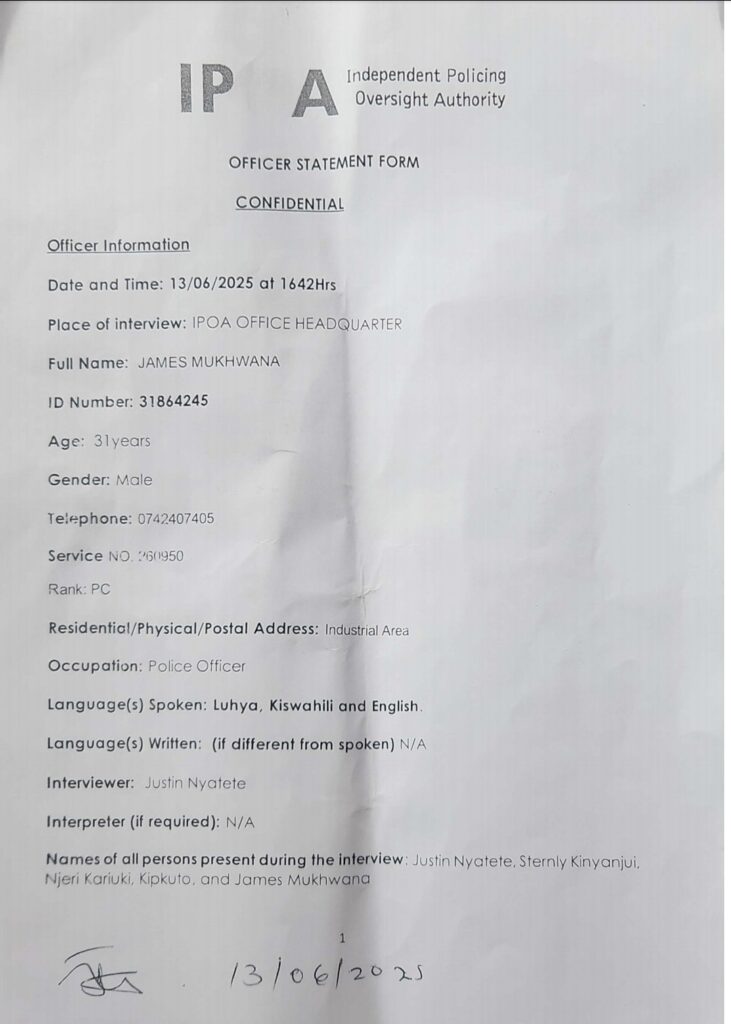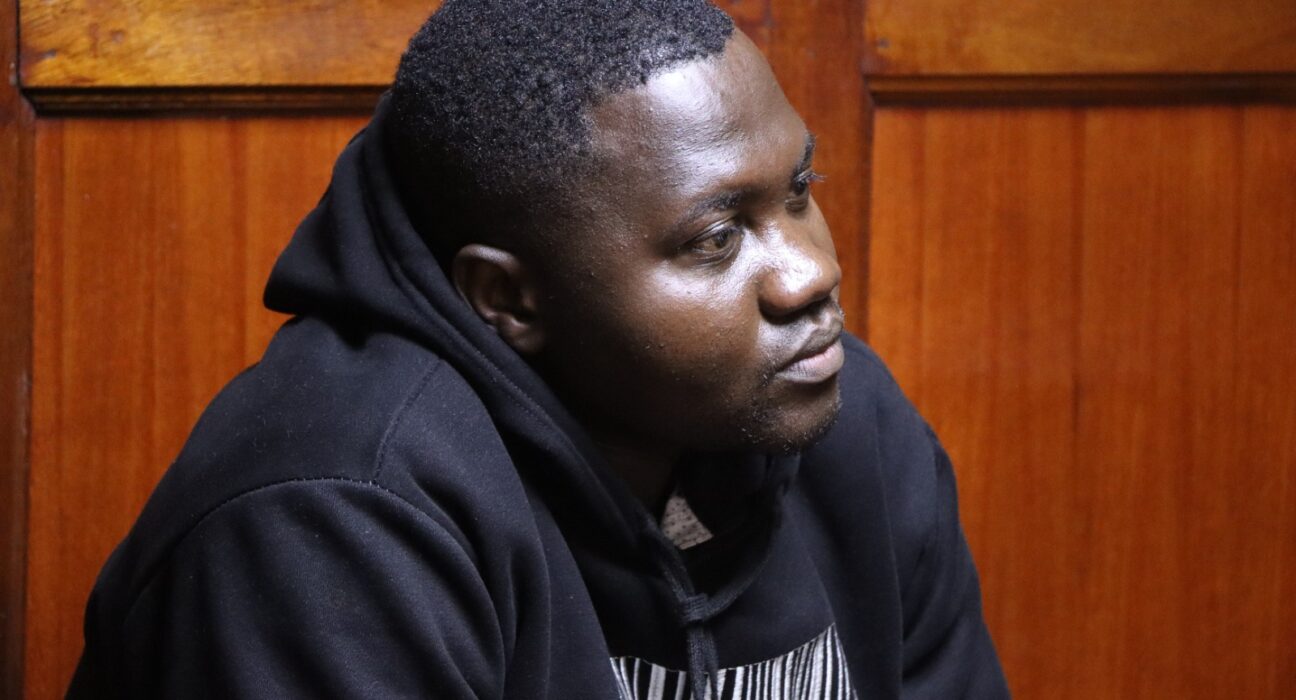The death of Albert Ojwang while in police custody has once again put a spotlight on police abuse and cover-ups in Kenya.
What stands out in this case is the disturbing claim that Police Constable James Mukhwana was given clear instructions not to mention the name of Deputy Inspector General Eliud Lagat in his initial statement to the Independent Policing Oversight Authority.

This suggests that a cover-up was carefully planned from the beginning, possibly to protect powerful individuals. The actions of the National Police Service, the Directorate of Criminal Investigations, and even IPOA have raised doubts about their commitment to justice, especially when it comes to holding senior officers accountable.
Mukhwana’s later confession makes it clear that he was part of a system that had already decided who to protect and what to hide. On June 12, 2025, he gave a second, more honest account of what happened on the night of June 7.
According to him, OCS Samson Talaam gave him orders that came directly from DIG Lagat.
These orders were simple but brutal Ojwang, who was brought in by DCI officers, was to be “disciplined.”
Mukhwana was told to organize some inmates to beat Ojwang. Four inmates were chosen for this, and Ojwang was taken to a cell and assaulted. When Mukhwana and another officer, PC Kimani, checked on him after hearing screams, they found Ojwang bleeding.
Mukhwana pleaded with Deputy OCS Samuel Nganga to take him to the hospital. Ojwang later died.
In his words, Mukhwana said that Ojwang was not meant to be killed, only to be punished under instructions passed down from DIG Lagat through the OCS.
He ended his statement by saying he was sorry for what happened and prayed for the family of the deceased. While this apology is important, it also shows the danger of blind obedience in a system that protects those at the top.
Mukhwana also expressed fear for his life, refusing to seek bail and asking for witness protection because he believed he might be targeted.
His lawyers have complained of being followed and harassed, which shows just how risky it is to speak out against senior police officers in Kenya.
This entire case paints a picture of how deep-rooted the problem of impunity is. DIG Lagat is being linked to a so-called torture squad, used to silence youth activists and critics of government corruption.
Yet instead of facing arrest or investigation, the system seems to be trying to protect him. Even IPOA, the agency meant to oversee police conduct, has been accused of taking part in the cover-up by accepting an incomplete statement from Mukhwana.
The public outcry, especially on social media, has been strong. People are calling for full accountability, not just for those who carried out the orders but also for those who gave them. Many believe that unless senior figures like Lagat are arrested and charged, police brutality will continue unchecked.
What started as another case of custodial death has grown into a serious test for Kenya’s justice system. Will the authorities choose to protect one of their own, or will they act in the interest of the people and the law? Mukhwana’s full statement may have exposed the truth, but whether justice will follow remains to be seen.
Until there is real accountability at the highest levels, victims like Albert Ojwang will remain symbols of a broken system.

